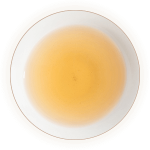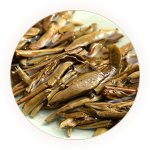
At that time, when the train and ship arrived in Chongqing, the first specialty introduced on the radio was Chongqing Tuocha
Chongqing – Dark tea – Post-fermentation – Warm-natured
Chongqing Tuocha
Chongqing Tuocha, Chongqing Tea Factory began production in 1953, is a premium pressed tea. In the process of production, medium and superior sun-green, sun-baked and stir-fried green tea is selected. Traditional technology and modern production means are used to match, screen and shape raw materials, and then mass pile, weigh material, steam, knead bag and press shape.



Category
One of the six major teas in China, Dark Tea, Post-fermentation, Warm-natured.
Place of origin
Chongqing is mountainous and foggy, so it has the alias of fog capital and mountain city, the average altitude is 400 meters, the highest peak is Yintiao Ling, 2796.8 meters above sea level.
Efficacy and effect
Nourish the stomach, help digestion, relieve greasiness, smooth gastrointestinal tract, reduce blood pressure, regulate blood lipid.
Brewing method
Tea set choose white porcelain cover bowl is the best, purple clay pot is the best, tea water ratio 1:20, water temperature 100℃, 10 seconds after moistening tea, water can be brewed more than 10 times.
Storage method
Dark tea can be stored for a long time.
Dark tea loose tea can be used in kraft paper bags, bamboo baskets, clay POTS will be installed first, small baskets with Tianxin tea, brick tea, cake tea can be loaded into odorless cartons, while relatively sealed, maintain air permeability, and finally placed in the study or tea room to preserve, pay attention to the environment and air circulation.
Naked tea, packaged tea, different types of products and products of different manufacturers should not be mixed to avoid odor.
Control temperature: below 25℃, relative humidity: below 70%.
Suitable of people
Weak health, like to eat meat, gastrointestinal disorders, high blood pressure, overweight individuals.
Contraindicated population
Malnutrition, long term vegetarians.